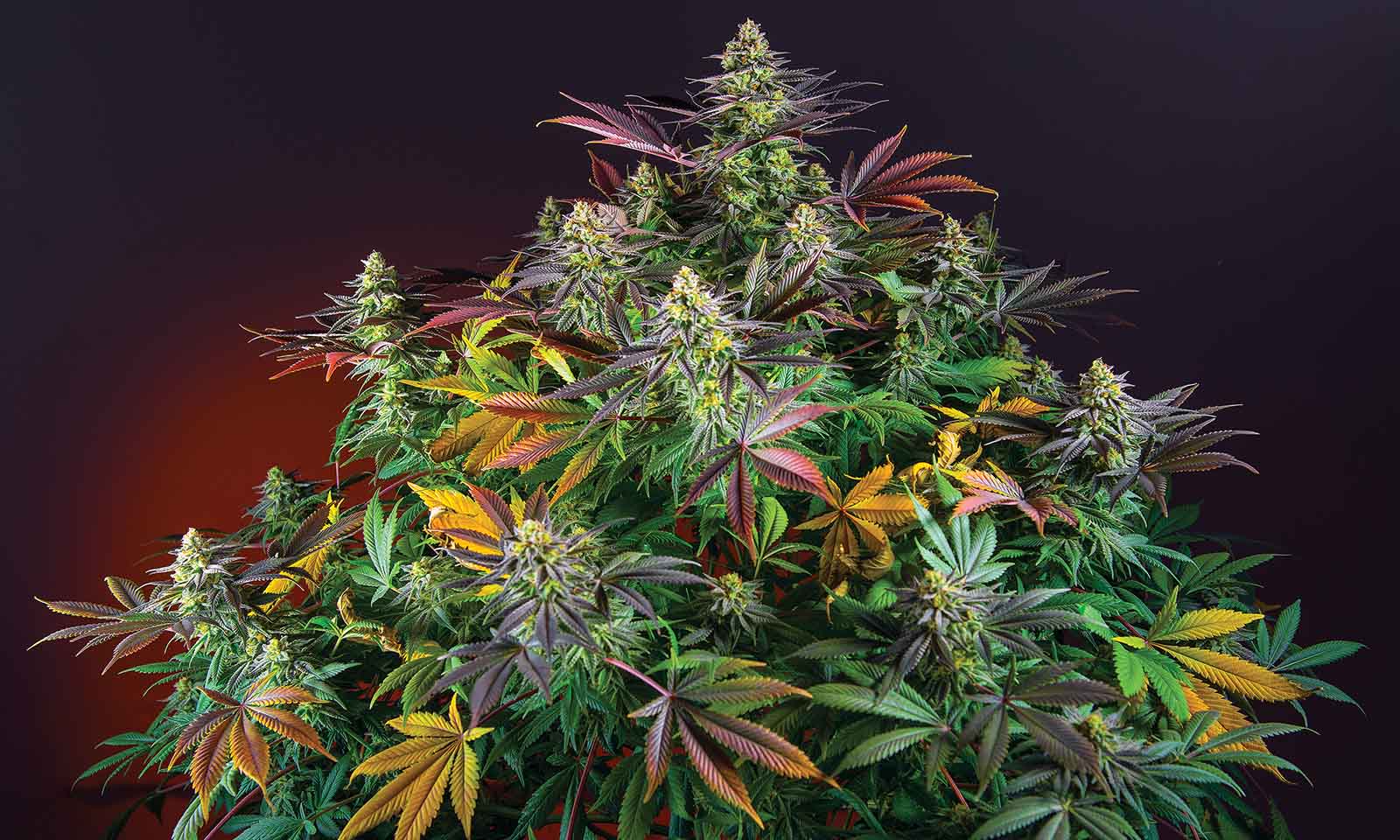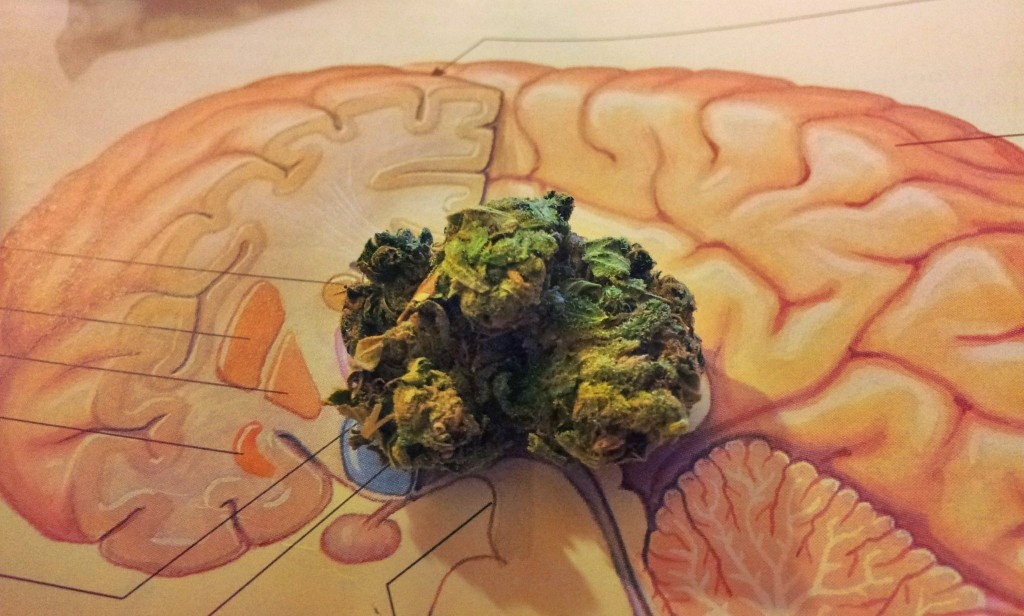News
Unraveling the Cannabis Schizophrenia Connection: Shedding Light on the Facts and Dispelling Misconceptions
Cannabis, also known as marijuana, has been a subject of controversy and fascination for centuries. With the increasing legalization and use of cannabis for both medicinal and recreational purposes, questions about its potential impact on mental health, particularly its association with schizophrenia, have surfaced. In this magazine-style blog, we embark on a journey to shed light on the facts surrounding cannabis and its relationship with schizophrenia. We delve into the latest research, explore the complexities of the topic, and aim to dispel common misconceptions to provide a comprehensive and evidence-based understanding of this intriguing subject.
Understanding the Correlation

The relationship between cannabis use and schizophrenia has sparked considerable curiosity and concern in both scientific circles and the general public. Numerous studies have indeed shown a correlation between cannabis use and an increased risk of developing schizophrenia or experiencing psychotic symptoms. However, it is crucial to approach this correlation with caution and an understanding of the difference between correlation and causation. While the evidence suggests a link, it is essential to recognize that correlation does not necessarily imply causation. There are complexities and confounding variables involved in studying this association, making it challenging to establish a direct cause-and-effect relationship.
One school of thought suggests that individuals with a genetic predisposition to schizophrenia may be more likely to use cannabis as a form of self-medication, seeking relief from early symptoms or emotional distress. Consequently, the observed correlation between cannabis use and schizophrenia risk might be influenced by this self-medicating behavior in vulnerable individuals. On the other hand, some researchers propose that cannabis use, especially during adolescence when the brain is still developing, may interact with specific genetic factors and environmental influences to increase the likelihood of developing schizophrenia in those already at risk.
To gain a more comprehensive understanding of the correlation between cannabis use and schizophrenia, it is crucial to conduct rigorous and longitudinal studies that follow individuals over extended periods. Such studies can help identify temporal relationships between cannabis use and the onset of schizophrenia symptoms, providing a clearer picture of the potential impact of Cannabis Schizophrenia. Additionally, research must delve into other risk factors associated with cannabis use and schizophrenia, such as the age of initiation, frequency, and potency of cannabis use, co-occurring substance use, and individual susceptibility to Cannabis Schizophrenia. By considering these factors, researchers can discern whether cannabis use is merely a correlate of schizophrenia or indeed plays a more significant role in its development.
As the scientific community continues to explore the correlation between cannabis use and schizophrenia, it is essential to avoid oversimplification and misinterpretation of the data related to Cannabis Schizophrenia. Public health campaigns and educational initiatives can play a vital role in disseminating accurate information and raising awareness about the potential risks and complexities surrounding this association with Cannabis Schizophrenia. By fostering evidence-based discussions, we can gain valuable insights into the relationship between cannabis use and schizophrenia, ultimately contributing to a more nuanced understanding of this intriguing and important topic of Cannabis Schizophrenia.
Unraveling the Role of Genetics and Environment
The link between cannabis use and schizophrenia is not a simple one; it involves a complex interplay of genetic and environmental factors. Genetics plays a significant role in schizophrenia susceptibility, and individuals with a genetic predisposition may be more vulnerable to the potential effects of cannabis. Studies have identified specific genetic variations associated with an increased risk of schizophrenia, and these variations may influence how the brain responds to cannabis compounds. The presence of these genetic factors may explain why some individuals experience adverse effects or an exacerbation of symptoms after cannabis use, while others do not.
Beyond genetics, environmental factors also play a crucial role in shaping the relationship between cannabis and schizophrenia. Early exposure to cannabis, particularly during adolescence, has been a subject of concern due to the critical period of brain development during this stage. The developing brain is particularly sensitive to external influences, and cannabis use during this time may impact neural circuits involved in cognition, emotional regulation, and psychosis susceptibility.
Unraveling the intricate web of genetics and the environment is essential to understanding the nature of the association between cannabis use and schizophrenia. Researchers are working diligently to identify specific genetic markers that may predict an individual’s vulnerability to the effects of cannabis. By gaining insights into these genetic factors, it may be possible to identify those at higher risk and develop personalized approaches to cannabis use.
Understanding the relative contributions of genetics and the environment can help inform prevention strategies and public health interventions. By recognizing that certain individuals may be more susceptible to the potential risks of cannabis use, targeted education and support programs can be developed to promote responsible and informed decision-making. Additionally, healthcare professionals can play a vital role in counseling individuals with a genetic predisposition to schizophrenia about the potential impact of cannabis on their mental health and well-being.
The relationship between cannabis use and schizophrenia is a complex interaction between genetic susceptibility and environmental factors. Identifying the genetic markers that contribute to vulnerability and understanding the impact of early cannabis exposure on the developing brain are crucial steps in unraveling this intricate connection. By gaining a deeper understanding of the role of genetics and environment, we can pave the way for more personalized and evidence-based approaches to cannabis use, ultimately working towards a better-informed and safer use of cannabis for individuals at risk of schizophrenia.
Cannabis and the Developing Brain: Impact on Adolescents

Adolescence is a pivotal stage of life characterized by significant brain development, and cannabis use during this stage may have distinct effects on the brain. Research has shown that regular and heavy cannabis use during adolescence can alter brain structure and function, potentially affecting cognitive processes and emotional regulation. As Cannabis Schizophrenia often emerges during young adulthood, understanding the impact of cannabis use on the developing brain is essential in assessing the potential risks.
Regular and heavy cannabis use during adolescence has been associated with disruptions in brain development. Studies using advanced neuroimaging techniques have revealed changes in brain regions rich in cannabinoid receptors, such as the prefrontal cortex and the hippocampus. These regions play crucial roles in decision-making, memory, and emotional regulation, making them particularly vulnerable to the effects of cannabis.
One of the key components of brain development during adolescence is synaptic pruning, a process that involves eliminating unnecessary or weak connections between neurons. This process refines the brain’s neural networks, allowing for more efficient information processing. However, Cannabis Schizophrenia use during this stage may interfere with synaptic pruning, potentially leading to altered brain connectivity and compromised cognitive functions.
The endocannabinoid system, which is the body’s natural system for processing cannabinoids like those found in cannabis, plays a crucial role in brain development. The endocannabinoid system helps regulate neurodevelopmental processes, including neurogenesis (the formation of new neurons) and synaptic plasticity. The introduction of exogenous cannabinoids through cannabis use can disrupt this finely tuned system, potentially affecting the brain’s ability to form and fine-tune neural circuits.
The impact of Cannabis Schizophrenia on the developing brain is a matter of great concern due to the association between cannabis use during adolescence and the increased risk of developing mental health disorders later in life, including schizophrenia. Schizophrenia often emerges during young adulthood, and adolescence serves as a sensitive period when the brain is particularly susceptible to environmental influences.
While the exact mechanisms underlying the association between cannabis use and schizophrenia risk are still under investigation, research suggests that cannabis’s effects on brain development and its potential to alter neural circuits may contribute to this increased vulnerability. As such, understanding the impact of cannabis use on the developing brain is crucial in assessing the potential risks and promoting informed decision-making among adolescents and young adults.
Adolescence is a critical period of brain development, and cannabis use during this stage can have distinct effects on the brain’s structure and function. The disruption of synaptic pruning, alterations in brain regions, and interference with the endocannabinoid system are among the potential consequences of regular and heavy cannabis use during adolescence. Given the association between cannabis use and the increased risk of mental health disorders like schizophrenia later in life, understanding the impact of cannabis on the developing brain is of paramount importance. By promoting evidence-based education and encouraging open discussions about the potential risks, we can empower adolescents and young adults to make informed choices about cannabis use and prioritize their brain health and overall well-being.
Navigating Responsible Cannabis Use and Mental Health

Dispelling misconceptions about cannabis and its association with schizophrenia requires a concerted effort to foster responsible cannabis use and promote informed decision-making. Public health campaigns and educational initiatives play a crucial role in providing accurate information about cannabis, its potential effects, and its relationship with mental health conditions like schizophrenia. These initiatives aim to raise awareness among the general public, especially young adults and adolescents, who may be at a critical stage of brain development. By equipping individuals with evidence-based knowledge, they can make informed choices and understand the potential risks associated with cannabis use.
Healthcare professionals also have a pivotal role to play in navigating responsible cannabis use and mental health. They are at the forefront of patient care, making them an essential source of guidance for individuals with a predisposition to mental health conditions. By engaging in open and non-judgmental conversations, healthcare professionals can help patients and clients understand the potential impact of cannabis on mental health, particularly schizophrenia. Personalized approaches that take into account an individual’s medical history, genetic factors, and risk profile can empower patients to make informed decisions that align with their overall health and well-being.
Promoting safe consumption practices is a fundamental aspect of navigating responsible cannabis use. Understanding the importance of moderation, proper dosing, and avoiding high-potency cannabis products is critical in minimizing potential risks, especially for vulnerable populations. Healthcare professionals can guide appropriate consumption methods and dosages tailored to each individual’s needs and health conditions.
Addressing stigma surrounding mental health and cannabis use is crucial in creating a supportive environment for individuals seeking help or considering cannabis use as a therapeutic option. By fostering open and empathetic discussions, society can encourage individuals to seek professional guidance without fear of judgment.
Navigating responsible cannabis use and mental health requires a multi-faceted approach that involves public health campaigns, education, and healthcare professionals’ active involvement. By promoting accurate information, personalized approaches, and safe consumption practices, we can empower individuals to make well-informed choices regarding cannabis use and support their overall mental well-being. As we continue to break down misconceptions and provide evidence-based knowledge, we can create a healthier and more compassionate environment for individuals considering cannabis use and seeking support for mental health concerns.
Unraveling the Cannabis-Schizophrenia Connection
The relationship between cannabis and schizophrenia is a complex and multifaceted topic that requires a nuanced understanding. Dispelling misconceptions surrounding this association involves delving into the latest research, considering the role of genetics and environment, and acknowledging the impact of cannabis on the developing brain. As we continue to shed light on the facts, promoting responsible cannabis use and informed decision-making is paramount. By fostering evidence-based discussions, we can cultivate a more comprehensive understanding of cannabis and its potential impact on mental health, ultimately supporting the well-being of individuals and communities.


